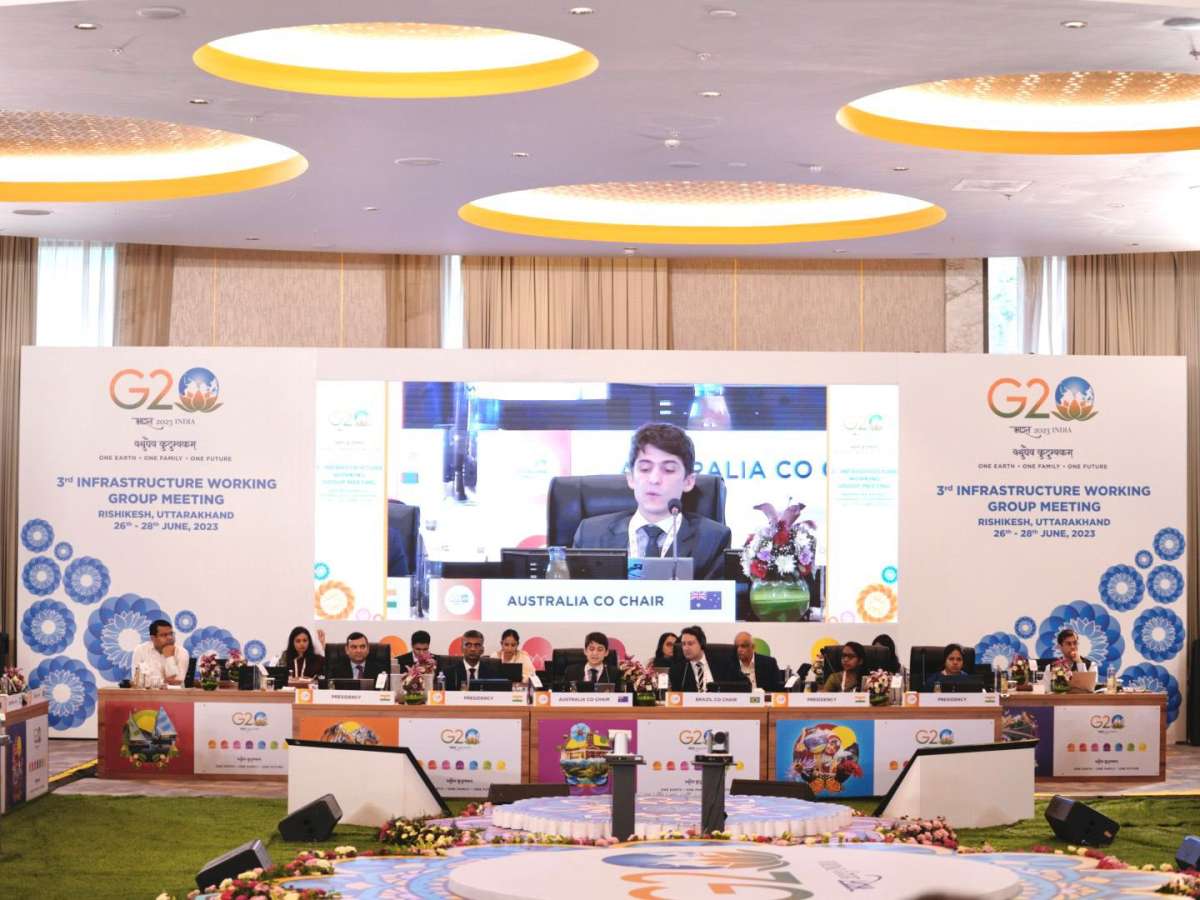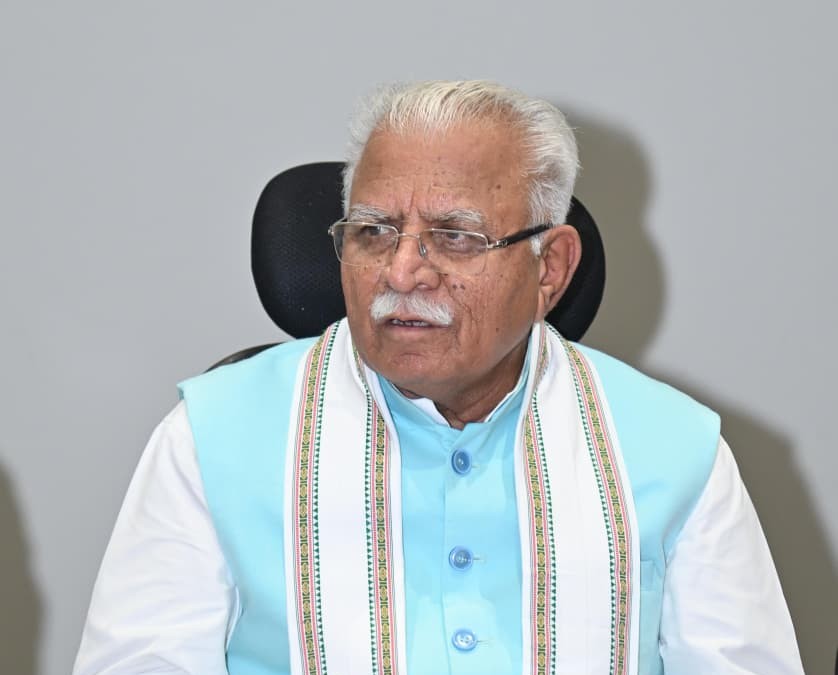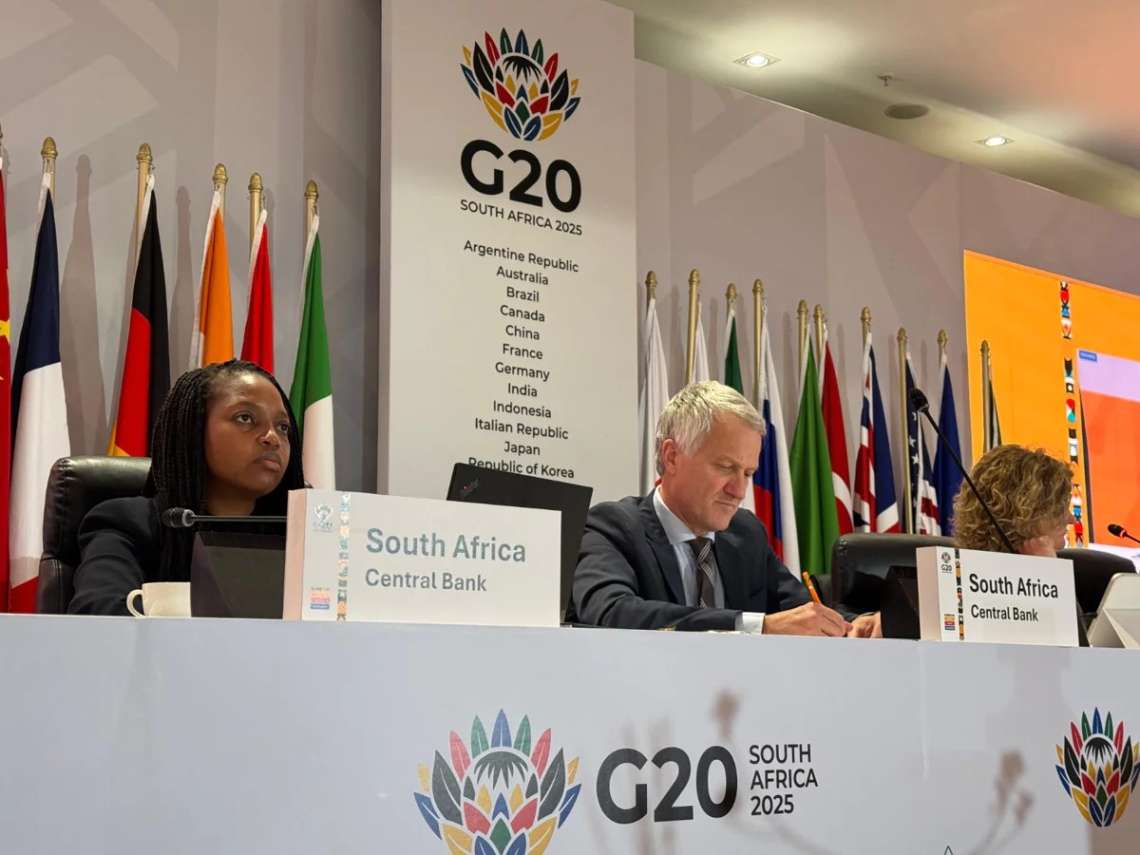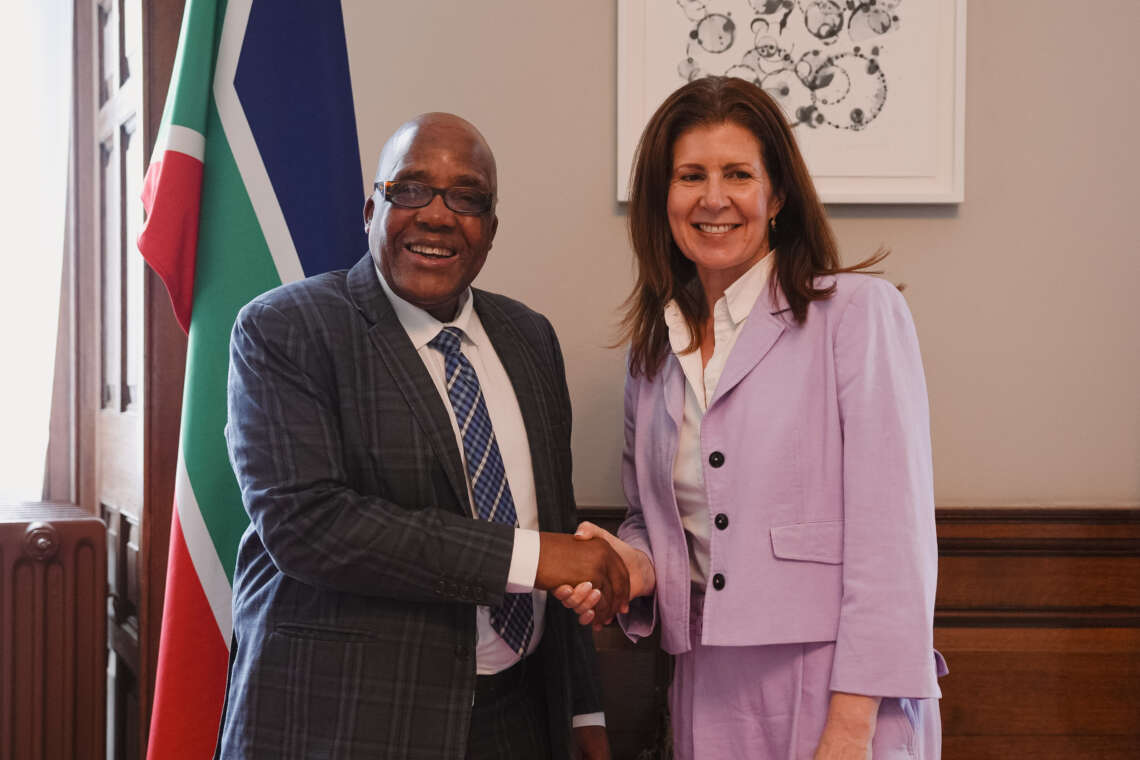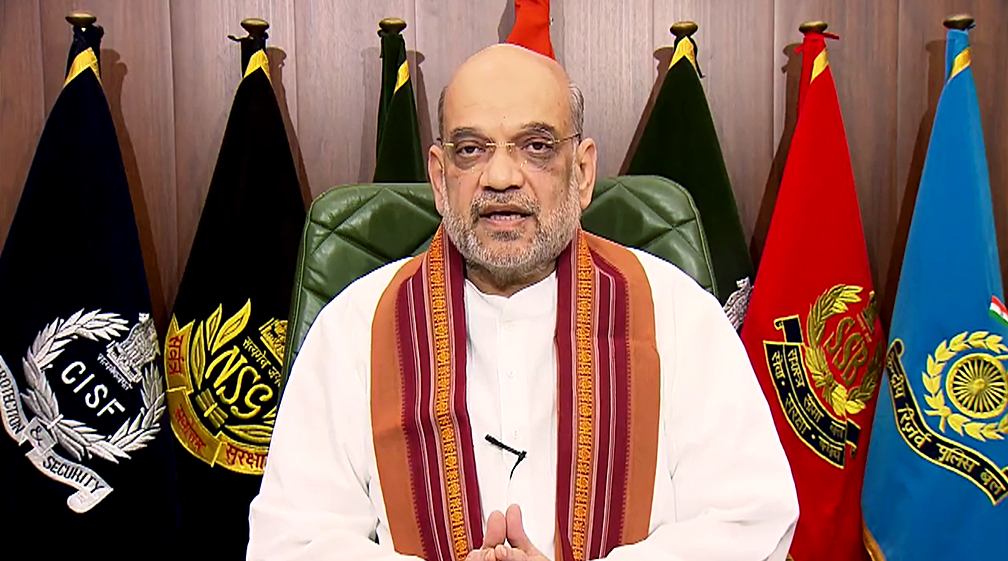A ‘High-Level Seminar on Roadmap for Sustainable Cities’ is also being organised in partnership with the Asian Infrastructure Investment Bank on Monday….reports Asian Lite News
Day one of the G20 3rd Infrastructure Working Group Meeting initiated deliberations on the key priority area, ‘Principles on Financing Cities of Tomorrow: Inclusive, Resilient & Sustainable’.
“Day 1 of the 3rd Infrastructure Working Group Meeting initiated deliberations on the key priority area,’ Principles on Financing Cities of Tomorrow: Inclusive, Resilient & Sustainable’,” tweeted G20 India. The meeting is being held in Uttarakhand’s Rishikesh. Total 63 delegates from G20 member countries, invitee countries, and international organisations is participating in the meeting to further the discussions on the 2023 Infrastructure Agenda under the Indian G20 Presidency and follow up on the discussions held during the second IWG meeting held in March 2023 in Visakhapatnam.
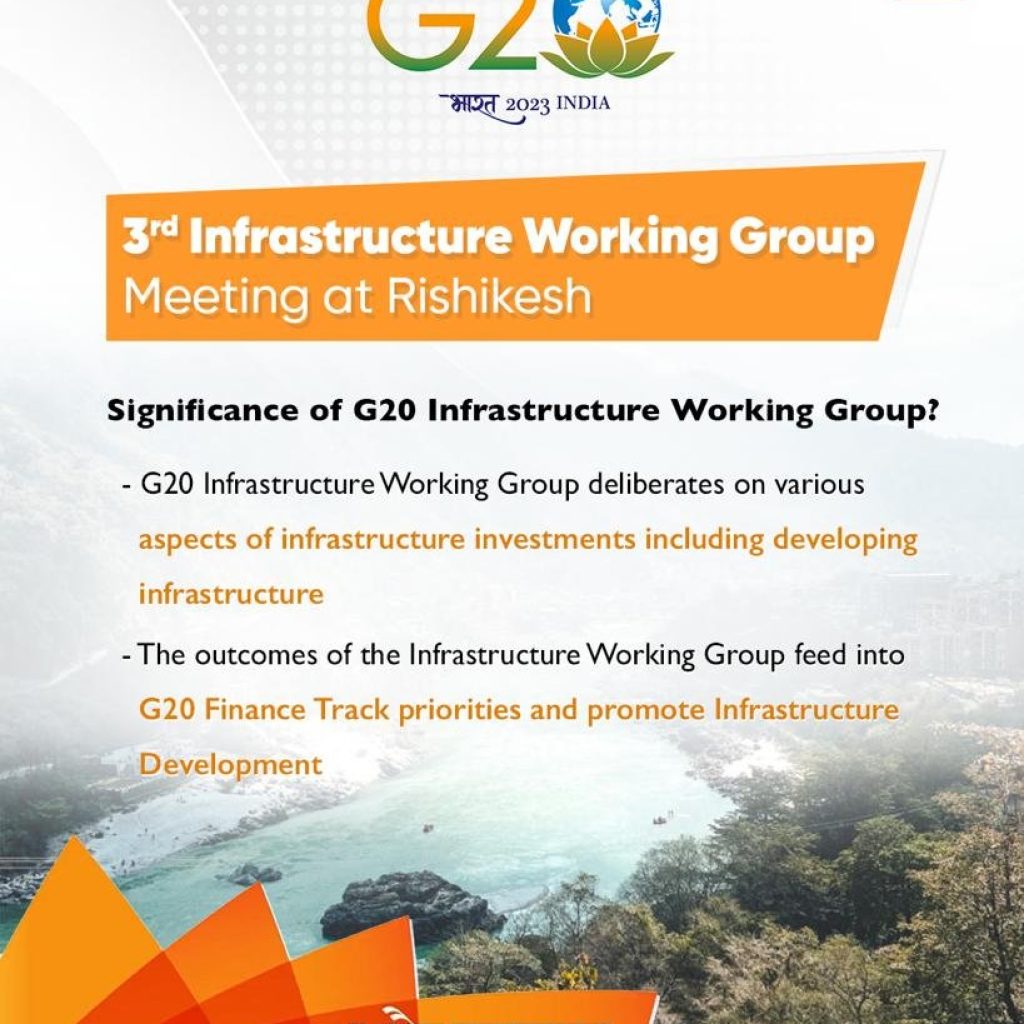
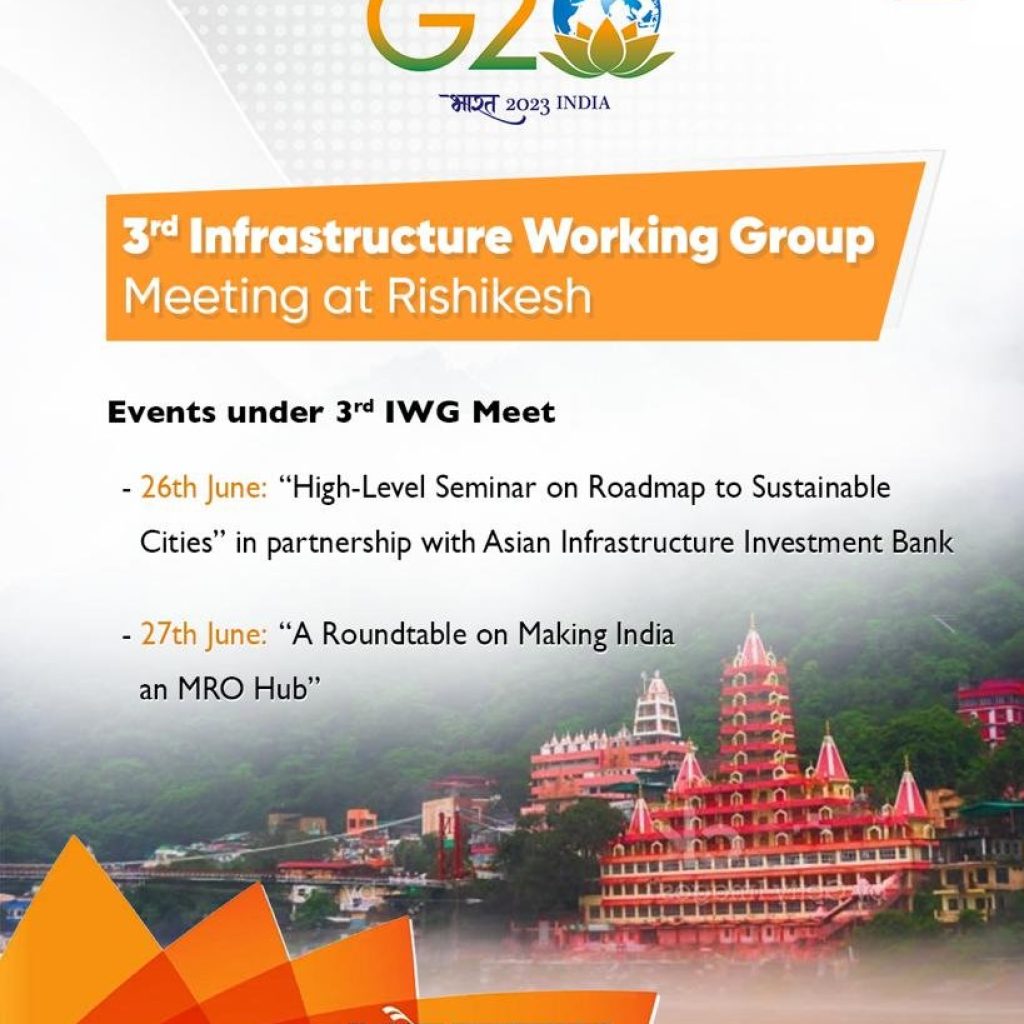
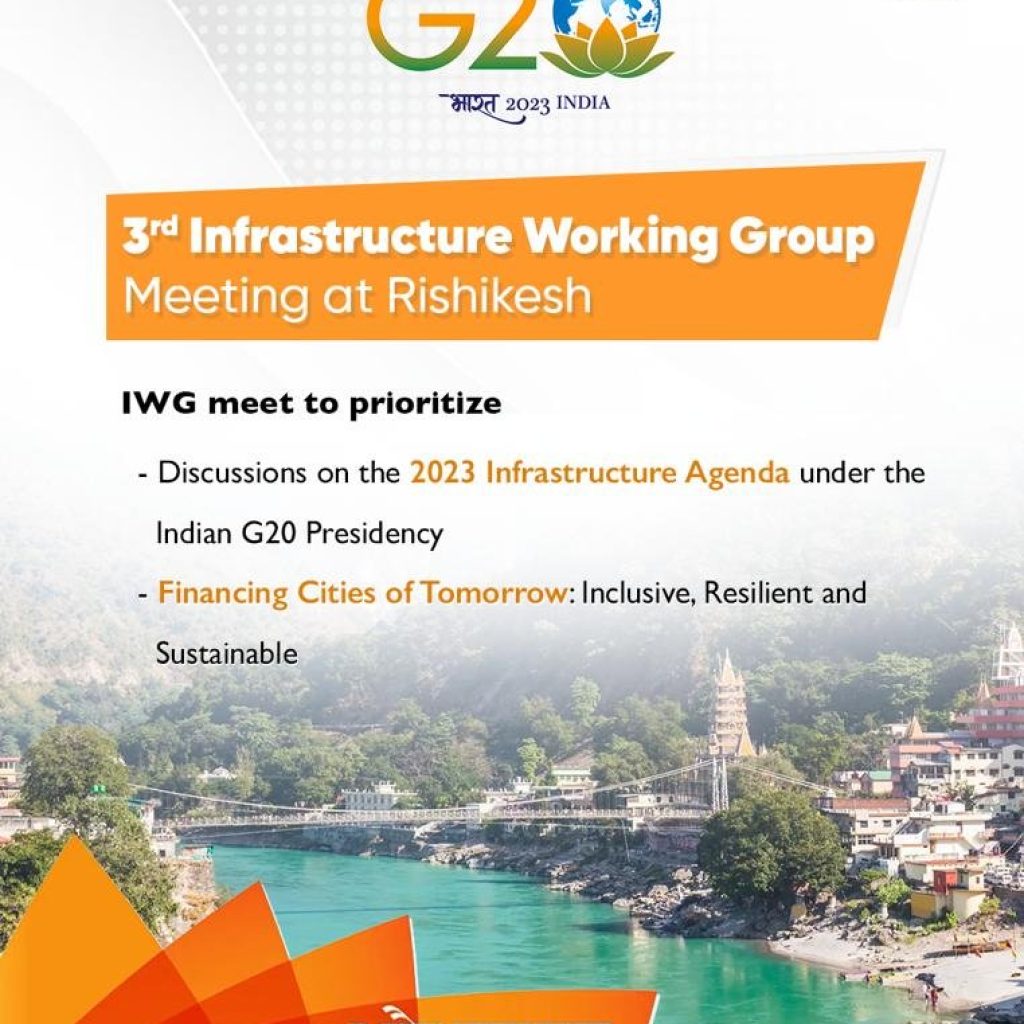
The G-20 Infrastructure Working Group deliberates on various aspects of infrastructure investment including developing infrastructure as an asset class, promoting quality infrastructure investment, and mobilizing financial resources for infrastructure investment.
The concrete progress towards various work streams of the 2023 Infrastructure Agenda will be discussed in the meeting.
During the three-day meeting, apart from formal discussions, various official meetings and cultural programs have been planned for the delegates. The delegates will also be made to experience the rich culture and natural beauty of Rishikesh. A tour for the delegates has also been arranged on June 28 at 2 pm.
Two seminars are also being organized on the sidelines of IWG meetings. A ‘High-Level Seminar on Roadmap for Sustainable Cities’ is also being organized in partnership with the Asian Infrastructure Investment Bank on Monday.
Discussions over three sessions will give G20 decision-makers an opportunity to hear from key challenges ranging from climate change to infrastructure resilience, exploring the role of rapid urbanisation, and inclusivity, technology, Infratech and digitalisation.
Delegates will also learn from Indonesia’s unique approach to launching the development of Nusantara, one of the world’s most ambitious cities. International and national experts are also joining the discussion.
Recently, External Affairs Minister S. Jaishankar said that India’s G20 presidency was successful in bringing back the platform’s focus on issues pertinent to the Global South, though at the same time ensuring that seriousness of Russia-Ukraine conflict and its impact are not diminished.
Briefing media persons after the G20 Development Ministers’ meeting in Varanasi, Jaishankar said that the ‘G20 Action Plan on Accelerating Progress on the Sustainable Development Goals (SDGs)’ and ‘G20 High Level Principles on Lifestyles for Sustainable Development’ were unanimously approved during the meeting.
“Right now, our focus is how do you address the pressing needs of the developing countries, the small island developing states, the least developed countries, those who are really teetering on the edge of an abyss,” he said.
“The G20 recognised today that the Global South is facing great problems that need to be responded with an action plan. This action plan was proposed by India,” he added.
Everybody supported this action plan and there was absolutely no politics over it, he added further.
“The seven-year action plan focusses on devising bold, decisive actions on fostering data for development and digital public infrastructure, women-led development, and human-centric economic growth and sustainable finance for development,” Jaishankar told reporters.
Secondly investing in women-led development, which will not only help to accelerate progress across all the SDGs, but will also deliver results on the ground for all sections of society.
Thirdly securing globally just transitions, which will help ensure the future survival of the planet, while meeting the aspirations of its diverse people.
“These transformative actions will act as a force multiplier for accelerating progress across all the SDGs and will contribute to a more effective and stronger multilateral system,” he said.
Jaishankar said that the theme of the Indian G20 presidency ‘One Earth, One Family, One Future’ therefore is an urgent call for action.
“As ‘One Earth’, we must demonstrate solidarity for those in need. Truly leave no one behind, mobilize resources and direct our efforts where they are most needed,” he said.
As ‘One Family’, we must break all silos and destroy all fragmentations. We need to integrate our approaches, build systems that leverage synergies rather than rely on trade-offs. Reinvigorate the systems which deliver on our agendas and ensure that all voices at home and outside are equally heard and taken into account.
“For ‘One Future’, we must keep the aspirations of our young people at the centre of our actions. Our actions today must not put their future in danger. We must invest in our collective future today and ensure that it is built on the foundations of equality, mutual respect and solidarity,” Jaishankar remarked.


